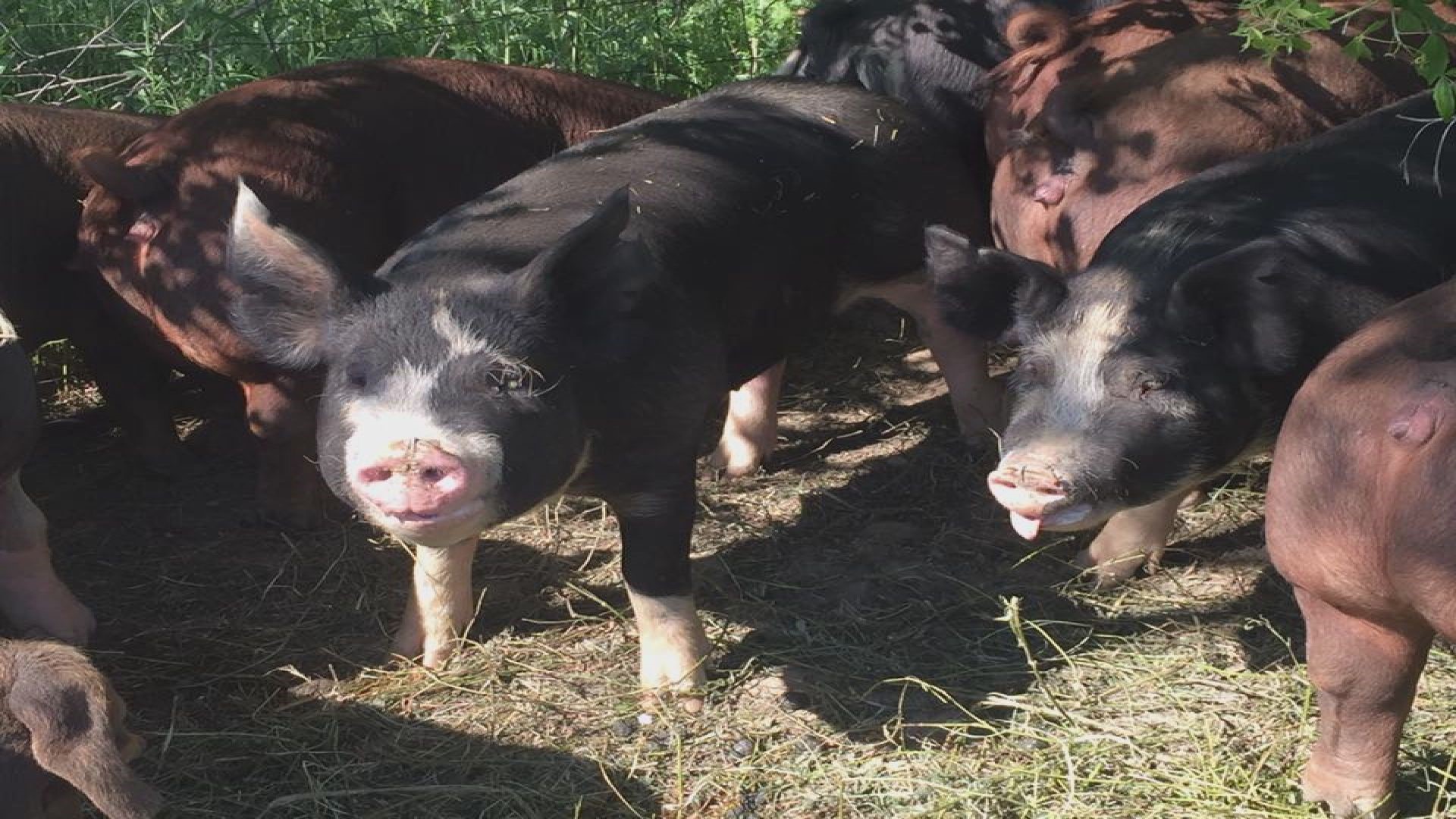WILLIAMS COUNTY, Ohio — With the restaurant industry closed along with other workforce shortages, hog farmers are being hit especially hard during the coronavirus outbreak.
Frank Parrish owns Parrish Pork and Poultry in Williams County. On average, 1,200 to 1,500 hogs go through his farm every year, which is a small operation compared to bigger complexes across the country.
He said his sales have been steady because the Toledo Farmers Market has been open every week, but larger pork farms haven't been so lucky.
Ty Higgins, a spokesperson with the Ohio Farm Bureau said that nearly every commodity has lost billions of dollars since the outbreak started, but the hog sector has taken the biggest hit. The sector is down 50% from three months ago.
Industry economists conservatively estimate that hog farmers will lose $37 per hog marketed, or $5 billion collectively, for the remainder of the year.
"They're losing money with every bale of hay they feed, with every time they feed the hogs or poultry. There's money lost there," Higgins said.
Food processing plants have had to shut down or change their hours of operation because of COVID-19, so there's no place for the product to go.
"A lot of large complexes are euthanizing smaller hogs so they don't have to feed them out. I don't know if a lot of people are realizing that's happening," Parrish said.
"Unfortunately, if they're not being taken to the processing plant, if that room is not being made for the new piglets, then that's one of the options that have to be on the table for producers. It's a very last resort," Higgins said.
Higgins added that he hasn't heard of that happening on Ohio farms yet, but it's an option that must be discussed.
Parrish said that he doesn't know how coronavirus will affect his business in the long-run but he's staying positive.
"I hope that when this thing lets up, we'll do it gradually and hopefully within the next few months, we can get a handle on this whole thing," he said.
One thing people shouldn't worry about, Higgins said, is seeing a shortage of food in the coming weeks and months.
"We have cold storage of meat that's going to last us quite a while," he said.
The federal government, through the CARES Act, has given billions of dollars to farmers across the board so they can stay in business.
The Coronavirus Food Assistance Program (CFAP), a new U.S. Department of Agriculture program, will provide $19 million in immediate relief to support farmers and ranchers, maintain the integrity of the food supply chain and ensure every American continues to receive and have access to the food they need.

